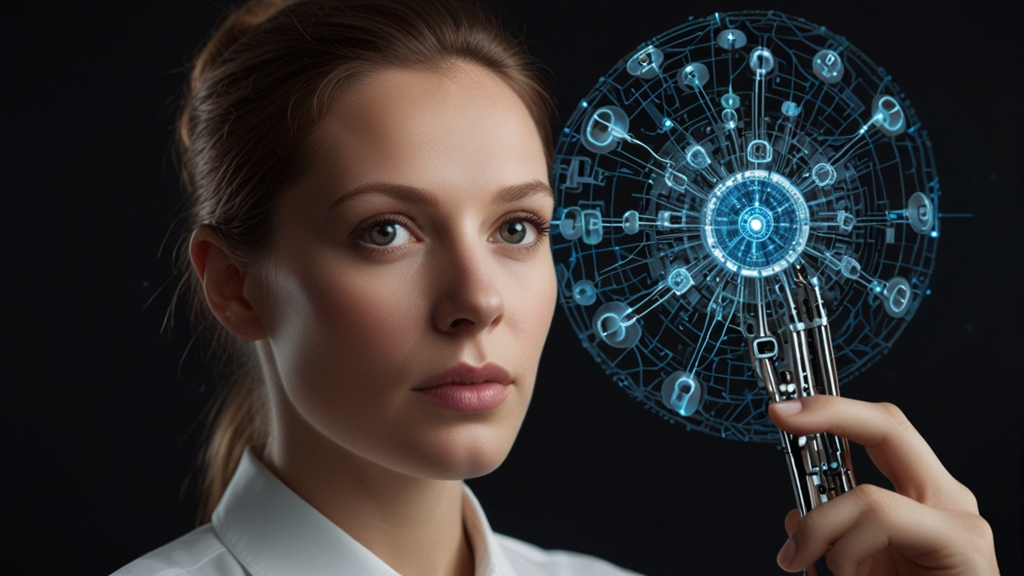Can Artificial Intelligence Outthink Human Logic?
Artificial Intelligence (AI) has advanced by leaps and bounds over the last few decades, transforming myriad sectors from healthcare to finance to entertainment. However, a lingering question remains: can AI outthink human logic? To address this, we must first understand the unique strengths and limitations of both human cognition and machine learning.
The Nature of Human Logic
Human logic is deeply rooted in our ability to learn from experience, to think abstractly, and to engage in ethical reasoning. Humans can tackle problems with a blend of intuition, creativity, and emotional intelligence, which often results in novel solutions that extend beyond brute calculation. Additionally, human logic is highly adaptable and capable of understanding context and nuance, elements that are indispensable when making complex decisions.
One of the quintessential examples of human logic at work is in the field of ethics and morality. People often rely on a complex web of cultural norms, personal values, and social considerations to make ethical decisions—choices that may not always follow a straightforward logical sequence.
“Human beings, who are almost unique in having the ability to learn from the experience of others, are also remarkable for their apparent disinclination to do so.” – Douglas Adams
AI and Machine Learning
AI systems, particularly those employing machine learning, operate through the processing of vast amounts of data. These systems use algorithms to identify patterns, make predictions, and even learn autonomously. AI's strength lies in its ability to handle massive datasets far beyond the capacity of any human mind and to perform calculations at speeds that are orders of magnitude faster than human capabilities.
These abilities are why AI is increasingly employed in fields such as medical diagnosis, where it can analyze imaging results with a degree of accuracy and speed far surpassing human doctors. Similarly, AI algorithms underpin technologies like natural language processing and facial recognition, tasks that involve the parsing of billion-sized datasets in real time.
“Artificial intelligence is no match for natural stupidity.” – Unattributed
Comparative Strengths
While AI can indeed outthink human logic in certain narrowly defined tasks, it lacks the general cognitive flexibility that humans possess. For instance, an AI system trained to play chess can defeat grandmasters, but it cannot apply its "thinking" to unrelated domains such as composing music or diagnosing diseases without specific retraining for each task.
In essence, AI excels in pattern recognition, speed, and the ability to handle complex calculations. It is incredibly proficient in environments where the rules are well-defined and the variables are known. However, it lacks the intuitive and emotional depth that characterizes human intellect, making it less effective in areas requiring empathy, creativity, or ethical judgment.
The Collaborative Future
Rather than viewing AI and human logic in opposition, it is more productive to consider how they can complement one another. AI's computational power can augment human decision-making processes by providing data-driven insights, identifying patterns that might be overlooked, and executing repetitive tasks with high precision.
Conversely, human oversight is essential for areas where AI's limitations are most glaring, such as ethical decision-making and tasks requiring a high degree of empathy and creativity. The ideal scenario is a symbiotic relationship where AI supports and enhances human capability rather than competing against it.
“AI is neither good nor evil. It's a tool. It's a technology for us to use.” – Oren Etzioni
Conclusion
While AI has shown that it can surpass human logic in specific, data-intensive tasks, it still falls short in areas requiring abstract reasoning, ethical judgments, and emotional intelligence. AI's role should be seen as complementary to human capabilities, augmenting rather than replacing human logic. As both fields continue to evolve, the collaboration between AI and human intelligence holds the promise of greater achievements than either could accomplish alone.
In the final analysis, AI may outthink human logic in narrowly defined tasks, but the broad, adaptable, and ethical reasoning capabilities of human intelligence remain irreplaceable. The future lies in leveraging the strengths of both for a more balanced and effective approach to solving the world's complex problems.





